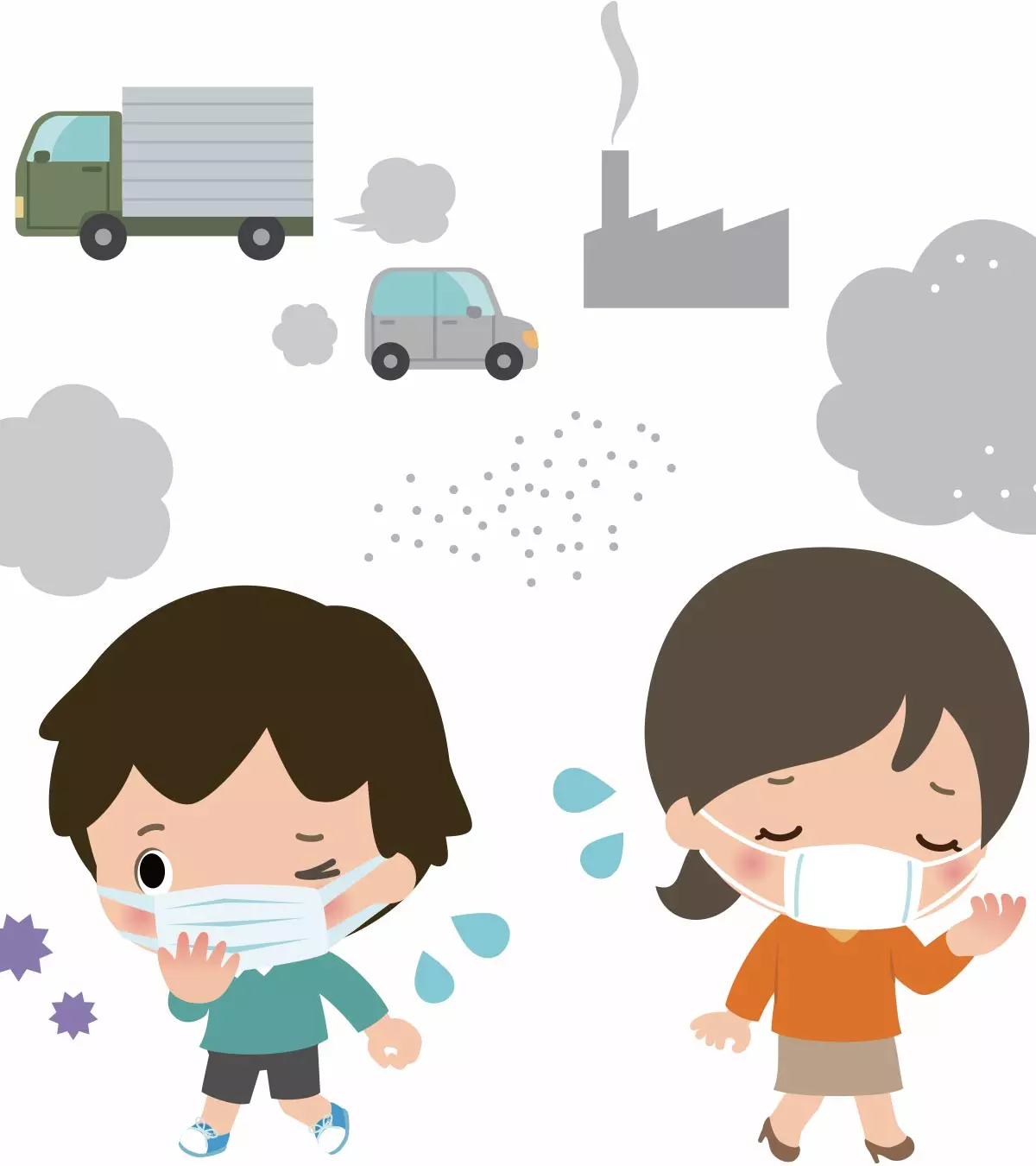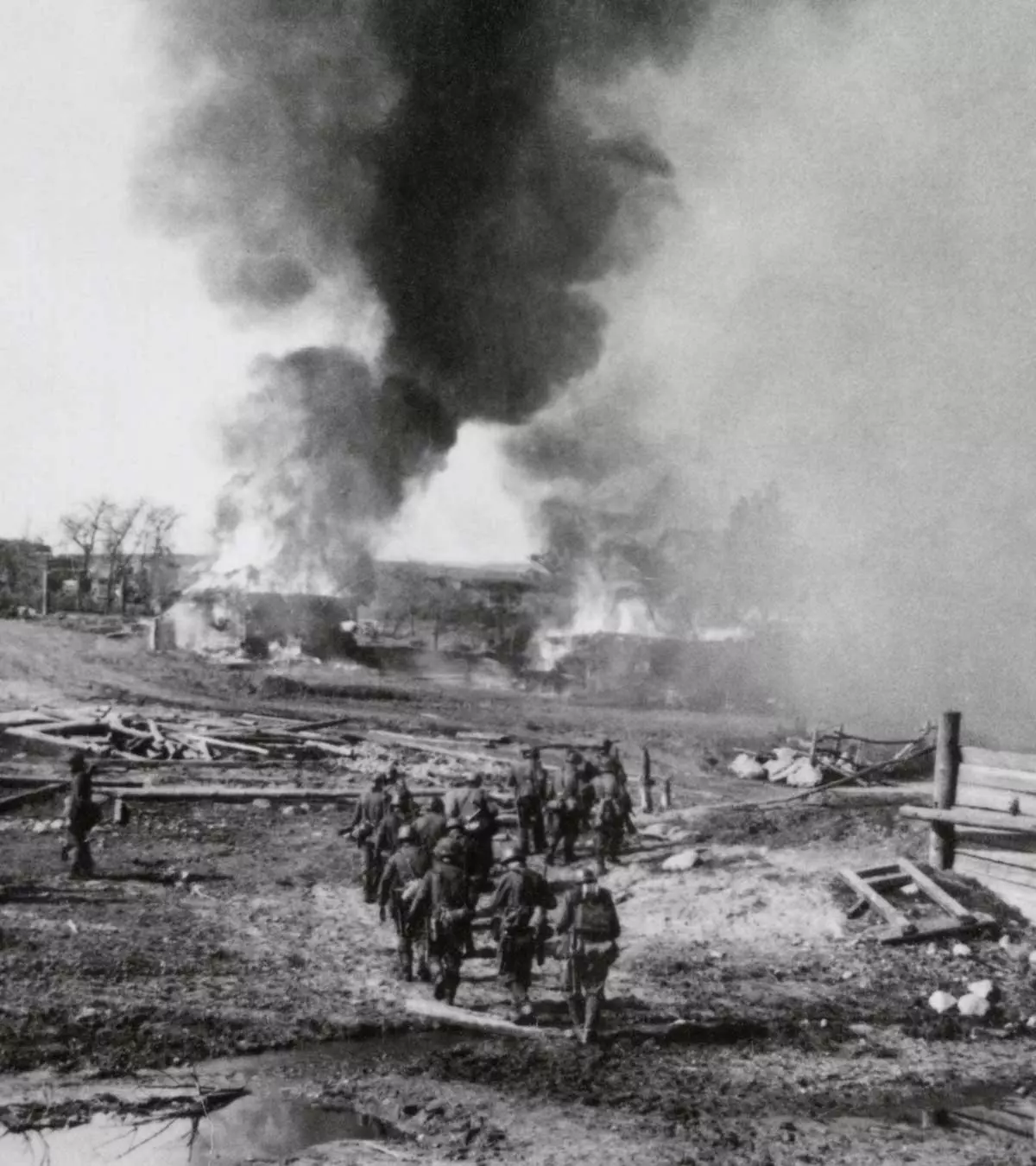

Image: Shutterstock
Breast engorgement is the painful swelling of the breasts due to them being overfull with milk. Breastfeeding is a special experience for all mothers. But it comes with its fair share of problems as well. One of them is the issue of breast engorgement. The engorgement of the breasts can make them firm and, in turn, make it difficult for you to breastfeed your baby. However, the symptoms of breast engorgement can be treated easily with the help of certain home remedies. Read on to know more about the causes, signs, diagnosis, treatment, and prevention of painful, swollen breasts.
What Is Breast Engorgement?
Breast engorgement is when the breasts become swollen, hard and painful due to excess milk (1). Engorgement of breasts is common, with most new mothers experiencing it about 3-5 days after delivery (2). Engorged breasts may also contain other fluids such as lymphatic fluids and blood.
What Causes Engorged Breasts?
Breast engorgement is usually normal in the postpartum period, but sometimes it can be due to a specific reason. Common causes of breast engorgement include:
- Coming-in of milk. Your breasts get into full-fledged milk production mode after your baby feeds on the colostrum – the first milk. Milk ducts produce a large amount of milk at once, causing the breast to increase in size rapidly and become engorged.
- Insufficient feeding. Doctors usually encourage mothers to begin feeding as soon as the baby is born. But sometimes the mother may be unable to feed the infant for several hours to days after delivery. It could be because she was on medication during the delivery process, and the doctors wait for the medicine to clear from the body. But milk production goes the usual way, and the breasts are overfilled.
- Erratic feeding patterns. You need to maintain a steady breastfeeding pattern to allow your baby to feel hungry at set timings and also regulate the rate of your breast milk production. Skipping feeds, switching to a new feeding pattern, or stopping breastfeeding can cause surplus milk in breasts. Breast engorgement may even occur when the baby suddenly feeds less than usual.
- Poor latch. If your baby does not latch properly to the nipple, then they will not have enough milk to empty your breasts, thus causing breast engorgement.
Besides engorgement, you may also experience other symptoms.
What Are The Symptoms Of Breast Engorgement?
If your breasts get engorged, you will feel the following:
- Heaviness, owing to the excess milk filling up the breasts.
- Tenderness and throbbing, along with a slight pain on touching the breasts are also felt.
- The breast tissue is hard and stiff on touch.
- The engorgement of the underlying breast tissue leads to the stretching of the skin from the outside.
- Increase in breast temperature, you may notice that your breasts are warm to touch despite the body being normal.
- Mild swelling in the underarms, with a slightly swollen lymph node within the armpit.
Some women may experience a low-grade fever, which is a body temperature less than 100°F. These symptoms are tolerable, but in some cases, it is good to see a doctor.
When To See A Doctor?
See a doctor soon if the following symptoms accompany breast engorgement:
- Fever above 100°F.
- Sharp pain in the breasts.
- The breasts and nipples become red or develop a maroon tinge.
- Swollen lymph nodes on other parts of the body other than the underarms.
- The inflamed underarm lymph node is very painful when pressed.
- A hard bulging lump on the breast.
- Pus-like liquid or a foul-smelling liquid oozing from the nipple.
Severe symptoms could point towards a potential infection, and it is best to consult a doctor in such situations.
How Is Breast Engorgement Diagnosed?
Your doctor can tell if you have breast engorgement or any other problem such as mastitis (inflammatory infection of the milk ducts) by inspection alone. If the doctor suspects an underlying problem, they may conduct further tests. A sample of breast milk or nipple discharge and blood may be collected to determine the presence of any pathogens in the body.
How Are Engorged Breasts Treated?
There is no specific treatment for engorged breasts, but if the discomfort is too much, you can consider taking ibuprofen. These medicines are compatible with breastfeeding and do not cause any problems to the baby (3). Your doctor may prescribe these along with other ones to reduce engorgement. But managing the condition at home is probably all that you need to ease breast engorgement.
What Are The Home Remedies For Engorged Breasts?
Here is what you can do at home to relieve engorged breasts:
- Massage gently: Massage your breast from the chest towards the nipple in small gentle strokes. If the breasts are not painful, then massage the breasts gently, with circular strokes. Massage improves circulation and allows the accumulated milk to flow through the nipple better.
- Express milk: Express milk about 8-10 times in a day using a pump or hand. Collect the expressed milk in a sterilized feeding bottle and feed it to your baby. Speak to your doctor or visit a lactation consultant to learn the correct way of expressing and storing breast milk.
- Ice packs and warm shower: Place an ice pack (not the ice directly) for 15-20 minutes at the point of engorgement to feel better. Take a warm shower to improve milk flow and reduce breast hardness.
- Increase feeds if required: Most newborns need 8-12 feeds per day. If the number of feeds is less than usual for some reason, then try to increase them slowly.
- Cabbage leaves may help: There are several anecdotal accounts of mothers finding relief from a chilled cabbage leaf placed within the bra. Clean the cabbage leaf before putting it in a refrigerator for chilling. Place it in the bra cup of the affected breast and leave it until it turns warm or wilts. There is some evidence that cabbage leaves can help relieve breast engorgement. Experts state that it is a harmless home remedy and worth a try (4).
Normal breast engorgement does not last for more than 48 hours.
If the condition persists for more than that, try these home remedies. If that doesn’t help either, consult your doctor. Sometimes engorged breasts may lead to complications.
Can Engorged Breasts Cause Complications?
Complications of breast engorgement include:
- Infective mastitis: Bacteria invade the accumulated milk and lead to a painful inflammatory condition called infective mastitis (5). It can cause a burning sensation and a mild blood discharge from the nipple.
- Hard lumps: Hard lumps often happen due to plugged ducts in the breasts during the phase of breastfeeding. However, in some cases, they might also be an early sign of breast cancer (6).
Do not panic if your breasts stay engorged for an extended duration. You probably need some medication along with home remedies. Also, engorged breasts during lactation is usually a sign of accumulation of milk rather than any other condition.
Next, we tell you how you can prevent this painful condition.
How To Prevent Engorged Breasts?
Preventing engorged breasts requires breastfeeding your baby and more.
- Maintain regular breastfeeding schedule: Newborn infants need to feed 8-12 times in 24 hours for the first couple of weeks to a month of their life. The average gap between two feeding sessions would be around three hours, which means your baby feeds once in three hours (7). Maintain a rigid feeding schedule to align your rate of breast milk production with the baby’s hunger.
- Let the baby feed from one breast at a time: Empty a breast and then start feeding the baby from the other breast. You’ll know when the infant gets less milk, and you’ll also know when the breast is getting emptied. Once a breast is drained, start feeding from the other breast.
- Breastfeed until the baby is full: Let the baby feed for as long as they want and keep and allow them to let go of the nipple on their own. You can tell the baby is full when they stop making sounds while suckling.
- Ensure good latch: A baby’s mouth should go half to one inch around the areola (the dark region around the nipple) and not just the nipple. If your baby is unable to get a latch properly for some reason, then see a doctor or a lactation consultant.
- Avoid wearing ill-fitting clothes: Tight clothes like a tight underwire bra can put immense pressure on the breast. The pressure on milk ducts restricts fluid movement leading to breast engorgement.
- Pump whenever needed: If your baby is unable to feed at their usual time for some reason, then pump your milk and store it for later use.
- Wean the baby gradually: Stopping breastfeeding abruptly does not give enough time for your breasts to adjust their milk production. Instead, wean the infant gradually by replacing one feed at a time with solid food. A steady rate of weaning prevents your breasts from overfilling with milk.
Frequently Asked Questions
1. Will engorged breasts go away without breastfeeding?
Yes. If you are unable to or not breastfeeding your baby while having an engorged breast, the engorgement will go away within a few days. But it is advised that you take out some milk and apply a cold compress to your breast to get some relief (8).
2. How should I sleep with engorged breasts?
It is advised that you lie on your back while sleeping as this posture allows the fluids in the breast to follow the direction of gravity and keeps your breasts in a higher position than usual (9).
3. How do I stop getting engorged at night?
By aiming to feed your baby at least two to three times at night, you might be able to prevent engorgement (10).
4. How long does engorgement last when milk ‘comes in?’
The engorgement should probably go away within a day or two after the milk ‘comes in (10).’
Engorged breasts is a common and bothersome breastfeeding problem but is seldom a cause for concern. Erratic feeding schedules and poor latching are its common causes. Generally, breast engorgement doesn’t require treatment. However, if the pain affects your daily routine, you may use painkillers after consulting your doctor. In addition, gently massaging your breasts, applying an ice pack, and taking a warm shower could help provide relief. Remember, breast milk production works in sync with a baby’s hunger. Hence, feeding the baby until full, maintaining a regular breastfeeding schedule, and pumping extra milk can help prevent breast engorgement.
References
1. Treatment for breast engorgement (overfull, hard, painful breasts) in breastfeeding women; U.S. National Library of Medicine
2. Engorgement; University of Michigan
3. The Transfer of Drugs and Other Chemicals Into Human Milk; American Academy of Pediatrics
4. Engorgement; American Academy of Pediatrics
5. Mastitis; NHS UK
6. Different Kinds of Breast Lumps; Stony Brook University Cancer Center
7. How Often to Breastfeed; Sutter Health Network
8. Breast Engorgement; Peace Health
9. Engorgement; La Leche League International
10. Engorged breasts – avoiding and treating; La Leche League International
Community Experiences
Join the conversation and become a part of our nurturing community! Share your stories, experiences, and insights to connect with fellow parents.
Read full bio of Melissa Kotlen
Read full bio of Swati Patwal














